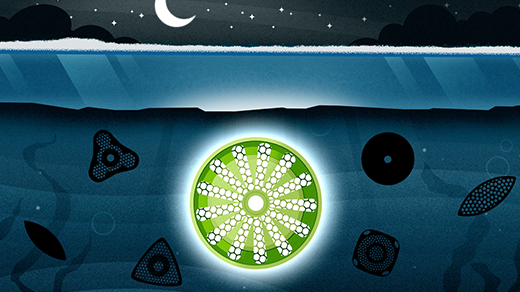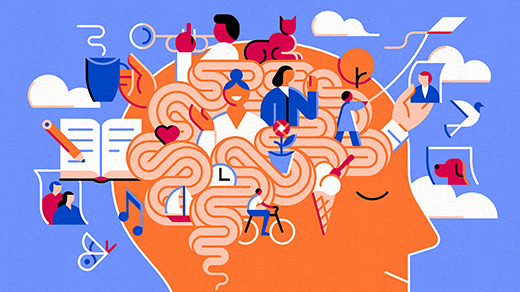Latest Articles
The Poetry Fan Who Taught an LLM to Read and Write DNA
By treating DNA as a language, Brian Hie’s “ChatGPT for genomes” could pick up patterns that humans can’t see, accelerating biological design.
New Proofs Probe the Limits of Mathematical Truth
By proving a broader version of Hilbert’s famous 10th problem, two groups of mathematicians have expanded the realm of mathematical unknowability.
Chatbot Software Begins to Face Fundamental Limitations
Recent results show that large language models struggle with compositional tasks, suggesting a hard limit to their abilities.
How Does Life Happen When There’s Barely Any Light?
Under the sea ice during the Arctic’s pitch-black polar night, cells power photosynthesis on the lowest light levels ever observed in nature.
Cosmologists Try a New Way to Measure the Shape of the Universe
Is the universe flat and infinite, or something more complex? We can’t say for sure, but a new search strategy is mapping out the subtle signals that could reveal if the universe has a shape.
New Book-Sorting Algorithm Almost Reaches Perfection
The library sorting problem is used across computer science for organizing far more than just books. A new solution is less than a page-width away from the theoretical ideal.
The Jagged, Monstrous Function That Broke Calculus
In the late 19th century, Karl Weierstrass invented a fractal-like function that was decried as nothing less than a “deplorable evil.” In time, it would transform the foundations of mathematics.
Concept Cells Help Your Brain Abstract Information and Build Memories
Individual cells in the brain light up for specific ideas. These concept neurons, once known as “Jennifer Aniston cells,” help us think, imagine and remember episodes from our lives.
Heat Destroys All Order. Except for in This One Special Case.
Heat is supposed to ruin anything it touches. But physicists have shown that an idealized form of magnetism is heatproof.








